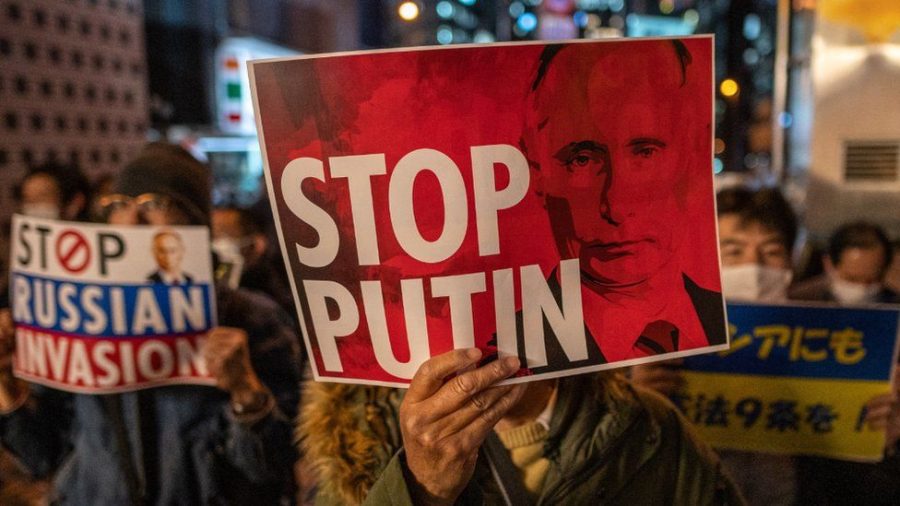Educational sanctions on Russia punish innocents
Rather than targeting Rusian leaders, educational sanctions harm students who are not at fault for war
While sanctioning Russia is important, some sanctions have harmed innocent students rather than the Russian government.
March 15, 2022
As Russian forces continue to attack Ukraine, a growing number of enterprises and corporations have started to impose sanctions on Russia. While the financial sanctions blocking banks and restricting imports have historically been a reasonable strategy, many other sanctions towards Russia appear to be ambiguous and somewhat unwise.
A week ago, the CEO and Founder of the QS World University Rankings, Nunzio Quacquarelli, announced that Russian and Belarussian entries would not be included in new QS university rankings and that Russia would no longer be promoted as a study destination.
I visited the QS World University Rankings website this evening and found that after setting the location as Russia, all universities in Russia were available to view. This implies that the sanctions will start with the new round of rankings next year.
This is not the first time the battlefront has transferred to the academic world. In June 2018, the U.S. Department of Justice issued The China Initiative, a policy that claims to counter China’s economic hostility, which endangers the technologies and intellectual property of the United States.
Under the pretense of protecting U.S. technology and trade secrets, several ethnically Chinese professors were arrested for having foreign ties with Chinese institutions while receiving research funds from the United States. One researcher at the University of Tennessee, Anming Hu, waited more than a year to be proven innocent and was not released until Feb. 2022.
Yet, a second wave of Red Scare ideology seems to be resurfacing. Last month, California representative Eric Swalwell suggested that Russian students in the United States should be expelled from their schools as part of the sanctions towards Russia.
“Frankly, I think closing their embassy, kicking every Russian student out of the United States, those should all be on the table,” he said in an interview with CNN. “Putin needs to know that every day that he is in Ukraine, there are more severe options that could come.”
Despite Swalwell’s hate speech, many educational platforms have expressed their willingness to “stand with Ukraine” by blocking their resources in Russia and Belarus. The Educational Testing Service (ETS) suspended testing in Russia and Belarus last week, and online education platforms like Coursera and Edx ceased their services in Russia and Belarus.
With that being said, is QS’ redaction of Russian and Belarussian universities really proving its credibility in assessing universities’ value?
Possibly. QS is right that currently, Russia is not the best choice of study destination. Sanctions from multiple domains are needed to warn Russia about greater punishment, and education is undoubtedly a crucial area.
However, before barring an entire nation of students from once-unlimited educational opportunities, we should consider who is harmed by these sanctions. Has Putin been disturbed by not being able to access rich education resources? Are Russian higher officials suddenly worried about unemployment due to the devaluation of their college degrees? No. It is students — who may have been expelled from St. Petersburg State University for their anti-war protests, who went to a foreign nation for better education opportunities, who are thirsting for more voices about this war besides the propaganda from their own country — who are hurt. While political and financial sanctions sacrifice civilians in order to cease war, educational sanctions are likely to promote ignorance and misunderstanding that will only encourage war.
Understandably, sanctions are the easiest way for an industry to “pick a side” and express support to the victims of war. However, exerting misguided sanctions does nothing to stop the perpetrator of violence. Though we all know “science without boundary” is a false ideal in this world, we should leave room for the exchange of ideas and enlightenment.












